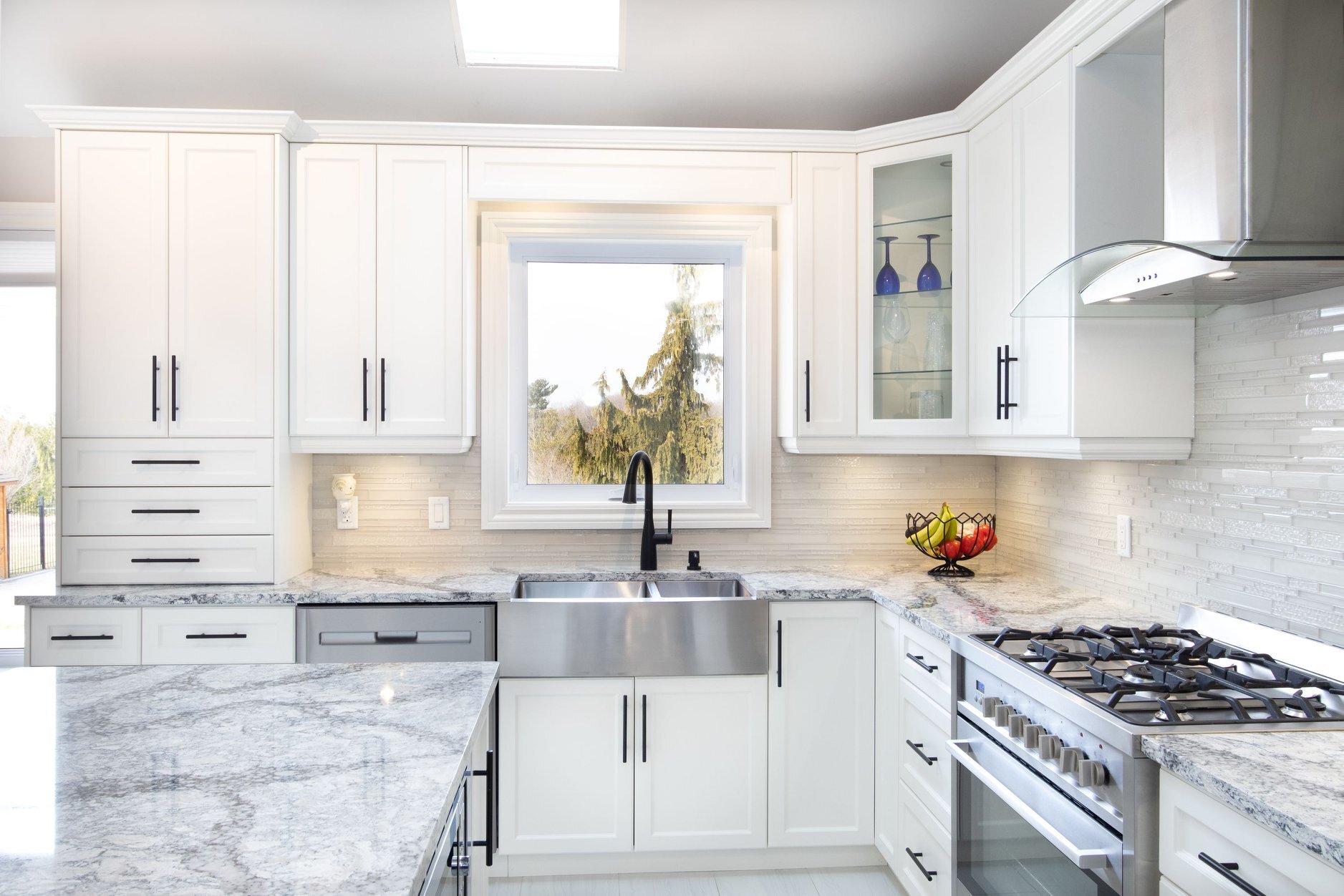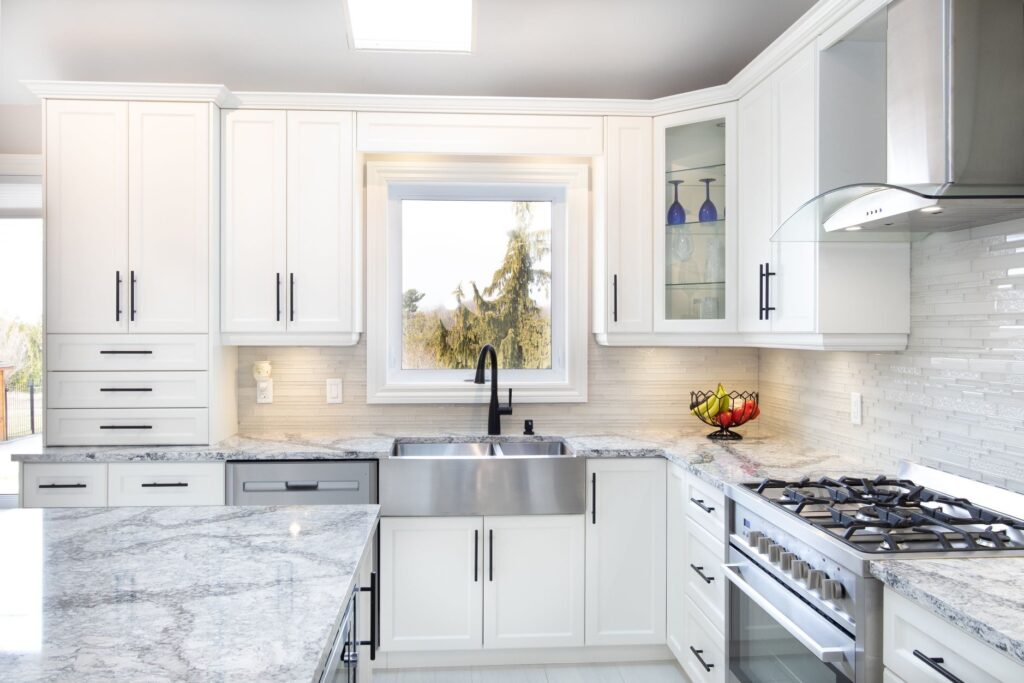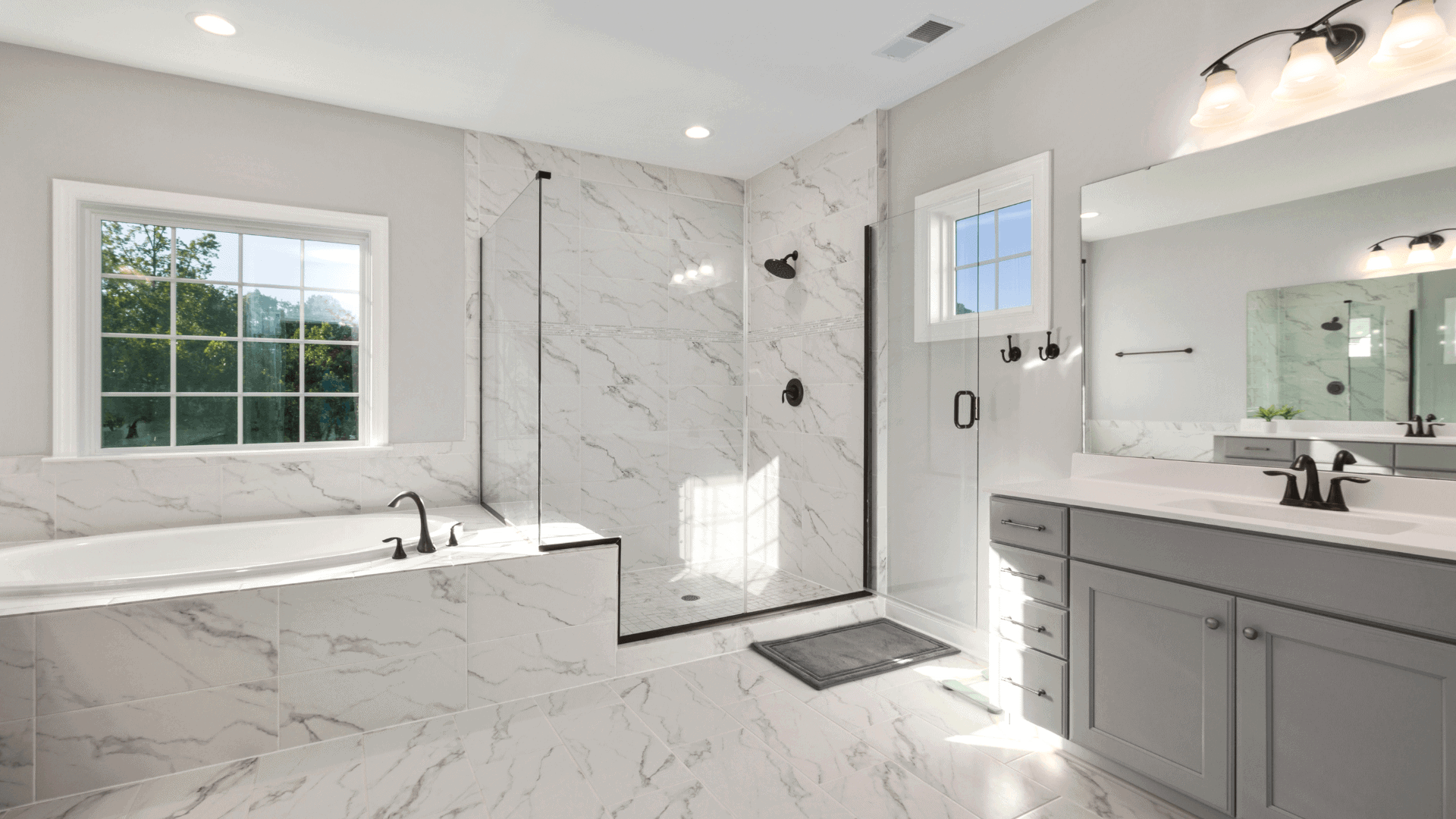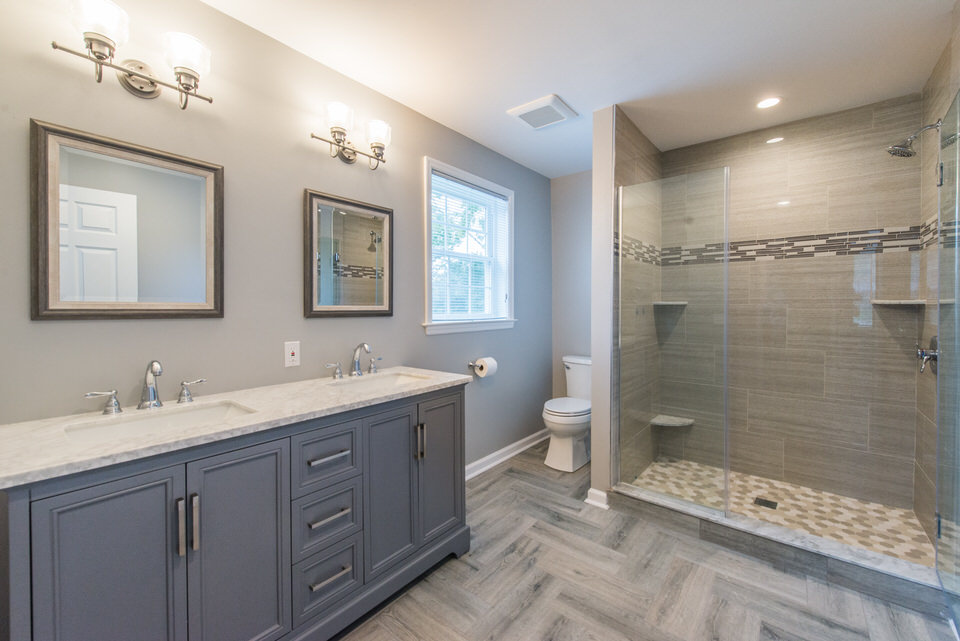Stone Countertops
At Cosmo Solutions Services, we provide Stone Countertops services.

Granite
Wide variety of colors and patterns, making it a versatile choice for many kitchen styles. Granite is an igneous rock, meaning it formed from the solidification of molten magma deep within the Earth’s crust. It primarily consists of three main minerals: quartz, feldspar, and mica. The specific proportions of these minerals, along with other trace elements, determine the granite’s color, pattern, and overall appearance. It is one of the hardest natural stones, ranking high on the Mohs scale of mineral hardness. This makes it highly resistant to scratches and abrasions, making it an excellent choice for countertops and other high-use surfaces.

Marble
Consists of the mineral calcite, High level of natural luster, Relative to other natural stones like granite, marble is softer and more porous. This process causes the limestone to recrystallize and form a denser, harder rock known as marble. Marble is available in a diverse range of colors, including white, gray, black, pink, green, and various earthy tones. The specific coloration depends on the minerals present during its formation. One of the most distinctive features of marble is its veining, which can range from subtle to pronounced. Veins are streaks or patterns of minerals that run through the stone and can be various colors, creating unique and visually striking effects.



Quartz
engineered quartz countertops combine the beauty of natural stone with enhanced durability and low maintenance. Quartz countertops are man-made surfaces composed of crushed quartz crystals combined with resins and pigments. This engineered material is highly durable, non-porous, and comes in a wide variety of colors and patterns. It is resistant to stains, scratches, and moisture, making it a popular choice for kitchens and bathrooms. Unlike natural stone, quartz countertops do not require sealing and are low-maintenance. They offer a uniform appearance and can be custom-fabricated to fit specific dimensions. Overall, quartz countertops provide a versatile and stylish option for both residential and commercial spaces.

Soapstone
unique combination of properties makes it a versatile and sought-after material in various applications, particularly in kitchens and bathrooms. Soapstone is a natural metamorphic rock known for its smooth, soft texture and unique, velvety appearance. It’s primarily composed of talc, chlorite, pyroxenes, micas, amphiboles, carbonates, and other minerals. Soapstone is relatively soft compared to other countertop materials like granite, which means it can be easily carved and shaped. It’s heat-resistant, making it an excellent choice for kitchen surfaces. Although it’s prone to scratches, these can be easily sanded out. Soapstone countertops often darken with age and use, developing a beautiful patina.



Slate
A fine-grained metamorphic rock with a unique matte finish, often chosen for its natural, rustic appearance. Slate is a fine-grained metamorphic rock characterized by its smooth texture, durability, and distinctive matte finish. It is primarily composed of clay minerals, micas, quartz, and sometimes other minerals. It typically comes in various shades of gray, but can also be found in green, blue, black, and even red tones. This variation in color adds to its visual appeal. Commonly used for roofing, flooring, and wall cladding, slate is also a popular choice for crafting items like coasters, tabletops, and decorative elements. It requires minimal maintenance, typically only needing regular cleaning with mild soap and water.

Travertine
A type of limestone with natural pits and voids, often used for its distinctive look. Travertine is a natural stone that is formed by the precipitation of minerals from hot springs or limestone caves. It is characterized by its porous surface and distinctive, textured appearance. Travertine is created when minerals, often including calcium carbonate, accumulate over time in areas with active mineral-rich water, such as hot springs or caves. This process results in a unique, layered structure. Due to its porous nature, travertine should be properly sealed to protect against staining and moisture absorption. The cost of travertine can vary depending on factors like grade, thickness, and finish.


